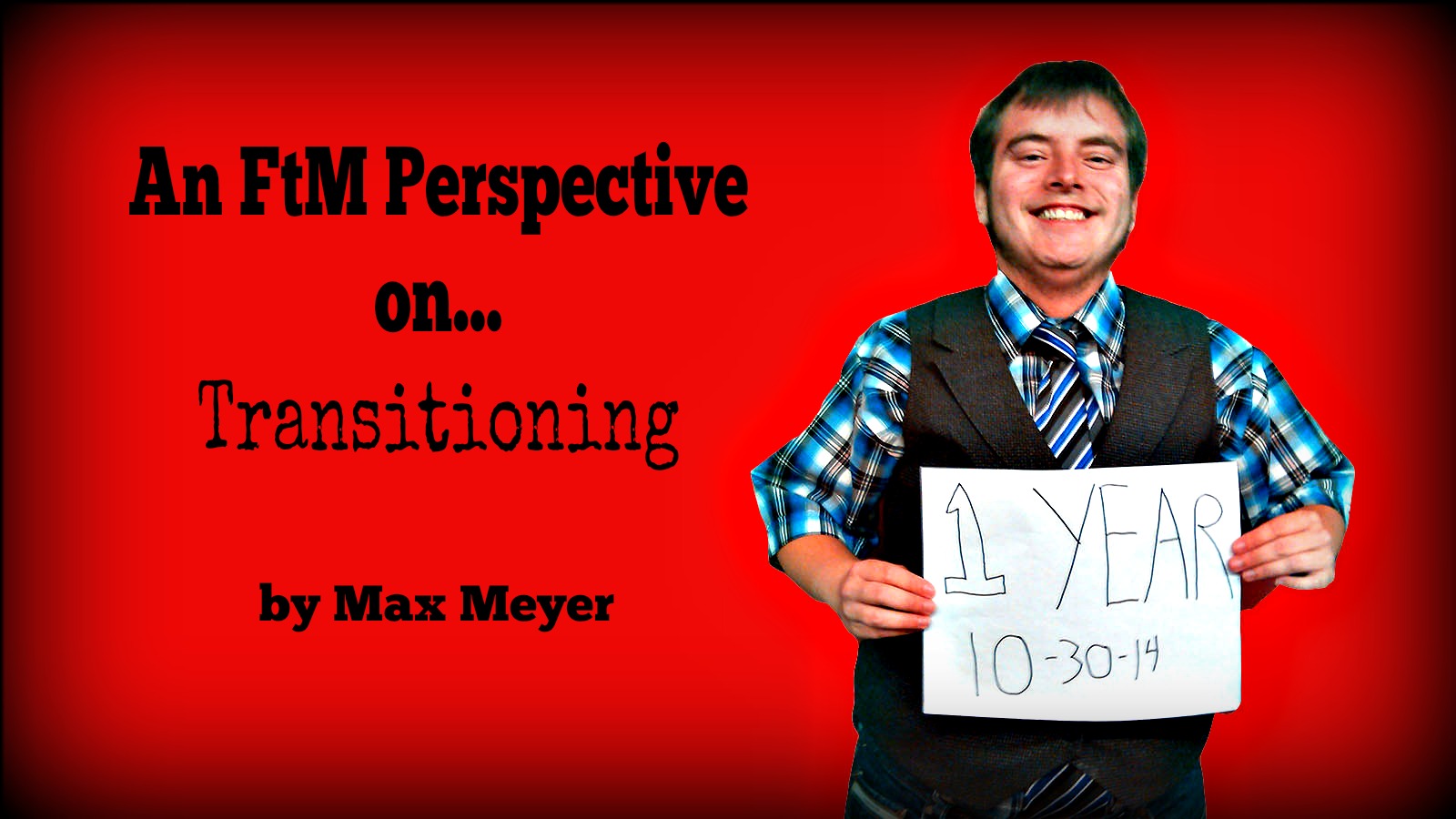My Perspective on Conversion Therapy
I decided to try something new this year and will be recording these “Musings of a Gender Therapist” videos from time to time.
These will be different from the “Ask a Gender Therapist” videos, where I answer reader and viewer questions about transgender topics. These will be unedited, kind of random, sometimes serious, sometimes amusing videos where I just feel like sharing things I think about as a gender therapist.
Thanks again to my colleague Paul Gross, MA for providing the transcript for this video, as well as for coming up with the “Musings of a Gender Therapist” name for this series!
Transcript
Hey there, this is Dara and I am a gender therapist in Colorado.
I have been on YouTube a little while making a video series called Ask a Gender Therapist. Basically I answer questions from readers of my blog and viewers of the YouTube series that are transgender related and I answer those questions through short videos.
This is a little different; I thought I’d give this a try where every now and then I’m just going to post a video about something that is on my mind. It might be in regards to something I think about as a gender therapist or it might be something else transgender related. But it’s going to be unedited so that way I can just put my thoughts out there, stream of consciousness, and then push ‘Upload’ and have it on YouTube right away. So hopefully you will find this to be of help.
I decided today I wanted to talk about my perception of conversion therapy.
The reason this has come up in conversation, and I’m sure many of you know this, is because in December of 2014, a little less than a month ago, a teenager named Leelah Alcorn who lived in Ohio ended her life.
She put a suicide note up on Tumblr that let everybody know that one of the main reasons she did it is because she’s transgender and her parents were unsupportive of her, in terms of encouraging her to transition. In fact, they had her go to conversion therapy in the hopes of her no longer feeling that way. This led in large part to her depression and her hopelessness.
This has been a big topic of conversation lately on the internet so I thought I would throw in my two cents.
Real quick, conversion therapy is something that, in the past. mainly has been talked about when it comes to sexual orientation, but it certainly is being used as well for those who are transgender. So this is going to be a broad, all-encompassing conversation about conversion therapy.
Conversion therapy, most of the time, is something that is based in religious beliefs. This isn’t going to be a conversation or debate about religion, but basically what happens is if someone feels like their feelings, whether it’s about their sexual orientation or their gender, conflicts with their beliefs and whoever their God is or whatever their God thinks about them, then they might decide they want to go to therapy to try to figure out how not to be that way anymore.
Additionally, there are parents who have kids or teenagers who tell them that they feel this way and then the parents have those kids or teenagers go into that type of therapy in hopes of changing their minds about that.
The main goal is for somebody who is expressing that they have same sex attractions no longer have those same sex attractions or that they manage them to the extent of they are not ‘acting out’ on those attractions.
For those who are transgender it has to do with trying to change the client’s perception of their gender and having them go back to believing that they are the gender they were assigned at birth and/or, if those feeling don’t go away, that they basically don’t act out on them, they don’t transition at all.
Like I said, this is not going to be a debate about religion; I understand that everybody has their own religious beliefs and I’m not here to try to challenge that.
But when it comes down to it, the premise of this makes me very uncomfortable. It’s basically saying that you have a mental disorder, whether it’s same sex attraction or that you feel like you are not the gender you were assigned at birth. So the fact that that’s the basic premise, that this is a mental disorder and this is not something that God would approve of, this is a sin…
And also for some people they say, “Oh, this is the sin you were meant to carry in your life, because everybody has a sin they have to struggle with. This is the one you were given, so we need to make sure you don’t act out on it.” I have also heard that as an approach as well.
At the root of it we are saying we need to change those feelings or we need to make sure you don’t express those feelings or act out on those feelings because God would not be happy about that and you’re going to go to hell, etc.
It’s difficult to talk about this without sounding like I’m not being judgmental against those who have this religious belief, so bear with me.
So someone has these feelings and what is most difficult and most damaging about this is that their feelings are then not valid, whether they have same sex attraction or they are expressing the fact they are transgender. What is happening is they are being told their feelings are not valid and we need to change them.
As you can see this can be a very slippery slope. What it encourages is repression. You are being taught to repress your true self, your true feelings, and we are talking about someone’s identity as a part of who they are. It’s not just a preference or a whim or something that they fancy; this is who somebody is at their core.
This type of therapy is designed to have you not feel that way and/or to have you not act out on those feelings. As I’m sure many of you can understand, there is a lot of damage that can happen when this takes place.
Although this is my opinion about it, I just want to reiterate that there are many, many organizations who agree, and I wrote down a couple of them; American Psychological Association, American Psychiatric Association, National Association of Social Workers, American Academy of Pediatrics, and there were probably four or five other organization on that list, who have very high credentials in terms of how they feel about mental health. And they all agree conversion therapy is very damaging. It contributes to depression and self-harm.
The thing that people are debating right now is whether or not conversion therapy should be banned. I thought about this a lot and actually my wife helped me crystalize a bit what it is that I was thinking about this.
Do I think that conversion therapy should be banned for kids and teenagers, under the age of 18? You bet. I do think that it should be banned. I think that if somebody is not of the age of consent where they are not able to make their own decision about whether or not they want to go into conversion therapy then this should not happen at all.
What am I talking about when it comes to those who are 18 and older? It gets a little trickier there because we are talking about someone’s freedom of choice; we’re talking about somebody to have the right to self-determination.
One encounter I had back when I worked at the Pride Center in Colorado Springs that made me take a more compassionate understanding toward this is I met several people who had gone through conversion therapy. This is because Focus on the Family is right here in Colorado Springs and myself and my boss met with several people who had gone through conversion therapy so we could understand better what it they were struggling with. That way we weren’t judging or demonizing them.
We spent a good three hours with them at a local restaurant, just getting to know three different people who had gone through conversion therapy. By the end of that time, you can’t help but hear what they are saying. And what they are saying is, “My belief in God and the way I believe in God is so strong that I want to be able to do whatever it takes to follow in His path or His footsteps. What I believe that means is I cannot ‘act out’ on my homosexual feelings.”
For the most part they reiterated they still feel that way, they still have same sex attractions. One of the people went ahead and got married in a heterosexual marriage and had kids. One of the people decided to be completely celibate instead of getting into a relationship.
To hear a human side of it you do understand that this is their right. If this is really how they feel, then they do have the right to pursue that sort of therapy. But again, these were grown adults who made this decision on their own.
In a perfect world, I still wish conversion therapy didn’t exist because that means that nobody thinks that this is shameful on any level. But because it does still exist we have to have the reality of that.
I feel that if someone does go into conversion therapy as an adult, that there should be some sort of list of warnings or risks, like you put on a pack of smokes. You say, “Look, I’m required to give you this list so you know why this is a bit risky for us to be going into this territory.” You give the client that and they sign it. I do think that is something that should be actually regulated, that it would be unethical if you did not provide that.
The problem with conversion therapy is that a lot of people who practice it are not necessarily licensed counselors. I’m not here to comment on the political or all those other aspects of that because it can get really messy. But I’m saying in an ideal situation, knowing this still does exist, what is it that can be done to best prepare people for it who decide they want to get into it?
In summary, I am in support of banning conversion therapy for kids and for teenagers. For those who are 18 and older, who are adults, who have been warned of the risks of it, I do understand that they have the freedom of choice and the right to self-determination if that is truly what they feel like they need to pursue. Even though, all in all, I look forward to the day when there doesn’t have to be conversion therapy because there should be no shame in being who you are.
That’s it for my segment today about what’s on my mind. Leave some comments and let me know what you think and I’ll be back later with more. See ya!






No Comments